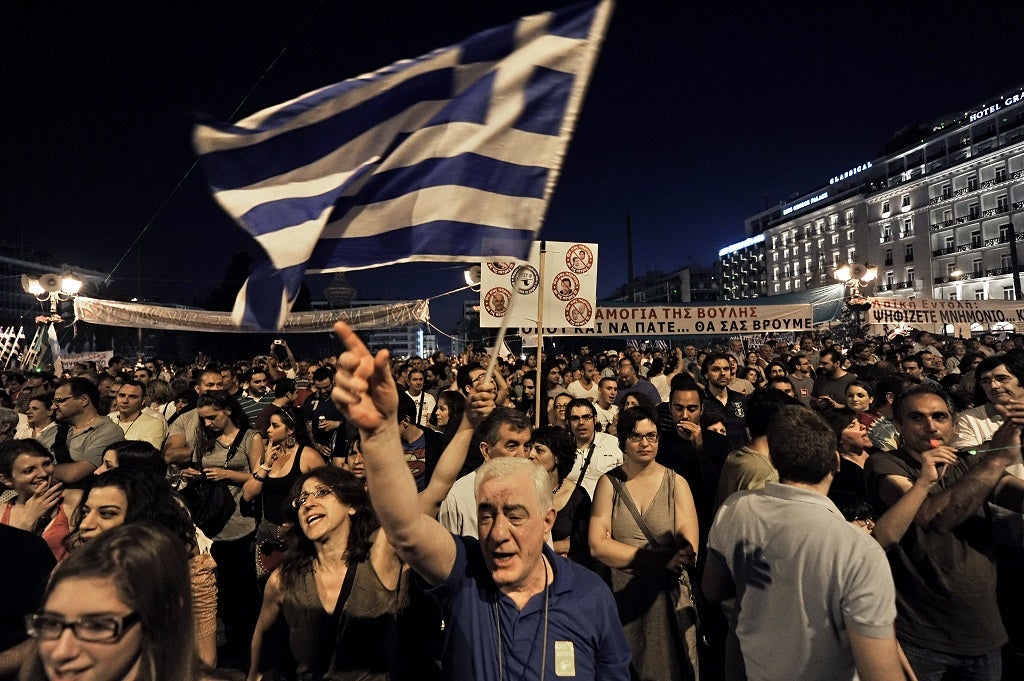What happens when you take the politics out of protest?
Unlike past protest movements where ideologies came into conflict, today's uprisings are raw and reject traditional political structures

How can we make sense of the waves of popular protest and social unrest that have swept the globe in recent years? Will 2011 have a legacy like that of 1968 or 1989? Are we witnessing an era of the unprecedented politicisation of young people? I want to suggest something different. I want to suggest that, in fact, it may be more accurate and instructive to consider these protests as occurring precisely in an era of depoliticisation.
Few young people on the left would characterise their ideas as ‘Thatcherite,’ but most, radical and non-radical alike, at least implicitly affirm what she famously described as ‘TINA’—there is no alternative (to capitalism). The experiences of the past century, the failure of pure socialism, and the horrors of ideological wars have bred a profound aversion to ‘meta-narratives’ - big ideas that once promised to make sense of the world and change it for the better.
This absence of meaningful themes means that politics risks losing its sense of ultimate purpose and offering little to galvanise a younger generation. As Daniel Bell observed in the late fifties, ‘the "middle way" is for the middle-aged… it is without passion and is deadening.’
Sometimes this means apathy and disengagement, but for those idealistic youth unwilling to relinquish the dream of global change, it can lead to taking a route that does not prize material ends. If a movement can’t really hope to change the wider world, it can tend to become the change, the end, in itself.
Disillusionment
When a particular end becomes the goal of protest, there is a danger that the result may not be greater consciousness but rather a sense of disillusionment and defeat as energies become exhausted. Even in Greece, the case with which I am most familiar, protests in recent months have a sort of subdued despondency about them.
Depoliticisation has also meant the decline of adversarial politics and the rise and celebration of the ‘mass.’ When ‘frustrated’ Greeks initially gathered in Syntagma Square in May 2011, they encouraged others to come as individuals, banning party flags and banners, and declaring that ‘any ideology is unwelcome in Syntagma Square’ (many of these early tendencies would later be challenged by more radical elements that had managed to gain a presence). Elsewhere, it was about ‘the 99%’. The larger the mass of individuals, the more undifferentiated and diverse, the better.
This has a number of consequences which cannot be fully developed here, particularly the papering over of what may be differing, or even fundamentally conflicting, interests amongst those taking part.
It is worth singling out for scrutiny however, that bringing a heterogeneous mass of individuals together automatically makes it difficult to draw any coherent narrative.
Villains and victims
However, the need to craft narratives sufficiently understandable and agreeable to all can also descend into melodramatic storytelling about victims and villains, good behaviour and bad behaviour.
Thus in Syntagma there was a tendency, at least in the upper part of the square, to limit opposition to collective cursing, branding politicians ‘traitors’ and ‘thieves.’ Folk-devilish villains can do much to stir up emotion and create a collective sense of righteousness. But this consensus comes at the cost of understanding. Not only do such simplistic analyses offer little prospect of solving complex problems, they also dangerously mirror narratives offered by the nationalistic extreme right. Indeed, this overlap in themes allowed for the latter’s participation in the daily gatherings, and more generally, continues to draw large numbers of disaffected youth toward these factions.
Growing numbers of highly educated young people are finding themselves superfluous. Particularly in Greece, where youth unemployment hovers around 50%, it’s becoming increasingly clear that the future of capitalism hardly includes them at all.
Taken together, this can mean anger and frustration - an ‘era of riots’ - but it can also mean cracks in the prevailing consensus, and the increasing possibility, indeed necessity, of once again, politicising protest.
Ashley Frawley is studying for a PhD at the University of Canterbury, Kent. She is speaking at What is the academy worth? in Athens on Friday 05 October, and Riots and revolutions: Europe’s young radicals? in London on Monday 08 October.
Independent Voices is partnering with the Battle of Ideas festival to present a series of guest articles from festival speakers on the key questions of our time.

Join our commenting forum
Join thought-provoking conversations, follow other Independent readers and see their replies